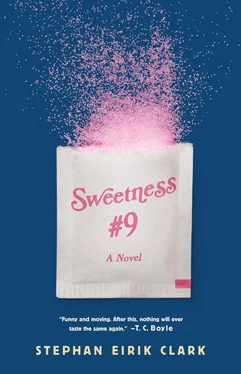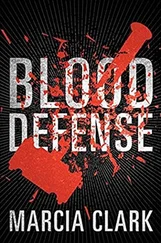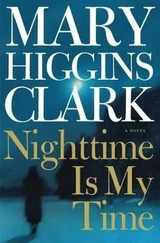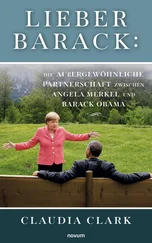I tapped my chest: Me?
“With the Russians, I mean. The Soviets.”
I shrugged, going for my wallet.
“Well, we get all types through here these days.”
I laid a twenty on the counter and glanced in the direction of the restrooms.
The man made change from an old clanging register, then retreated behind a blue curtain and came back with a key.
“You’re number nineteen seventeen.” A smile as he set it down on the counter. “That should be easy enough for you to remember.”
Though Battle Station had long been known as a textile town buoyed by fat government contracts and a workforce of dedicated Hungarian and German immigrants, the last of its great mills closed in 1961, eight years after the end of the Korean War made it impossible for the Weber Woolens Company to avoid bankruptcy. At that point the city’s middle class scattered in all directions, and Battle Station’s reputation fell as quickly as its tax base plummeted. Two of FlavAmerica’s competitors relocated during these trying times, one all the way to Pleasanton, California. Ernst Eberhardt, however, never considered such a move; he insisted we dig in, and so we were able to watch, from our location on the banks of the Raritan River, as the embattled downtown rose like a phoenix on the far shore of the polluted waterfront.*
The city center’s celebrated rebirth would never have happened had the Hilton Hotel and Conference Center, seeded by tax deductions and a gift of cheap public land, not sprung up across from us in the mid-eighties. In the years that followed its opening, the city became a reference point in discussions about brownfields and the power of eminent domain, with first cafés and restaurants opening to serve the conference center’s many visitors, and then several small theaters and a large multiplex taking over what had been Factory Row. When a supermarket opened its doors in 1997 (the first to serve the downtown area in more than forty years), I began urging Ernst to buy one of the condos that had been built atop it. It was just a short walk from there to the Stupfer Bridge, and then only another five or ten minutes to FlavAmerica on the other side of the river.
He wouldn’t hear of it, though, even if the one thing Ernst preferred to taking the bus was a good long stroll. He insisted on living where he’d always lived, in an area of Battle Station where the urban decay was not yet fully realized. Here, almost two miles to the east of FlavAmerica, where even tattooed twenty-somethings didn’t envision their next skateboard shop or cooperative café, a Dunkin’ Donuts operated by an extended family of Thai immigrants occupied a street corner where once a German American sports club had stood. Ernst lived five lots up from it, in a spartan two-story brick row house dominated by green aluminum awnings that had been streaked white by the passing avian population. His neighbors, as relative newcomers to the area, if not the country, were both less fortunate and more honest; they had bars over their windows and bed-sheet curtains.
After I parked in front of Ernst’s house the next morning (he had insisted on thanking me with breakfast), I ran into Eliza as she was coming down the front steps. She was wearing yet another tiger-print blouse, this one held in place by a thin black belt circling her belly, and had a smile on her face, even after she’d noticed me.
“Morning, David!”
“Aren’t you feeling chipper,” I said.
She fished her key chain out of her purse and pushed a button to unlock the doors of her new car. “A little present,” she said.
As the Jetta responded with a beep, I turned to look up the street as if seeing the car for the first time.
“You have a very generous boyfriend,” I told her.
Still smiling, she dropped down into the car, saying she’d see me at work.
The front door was unlocked, so as I pushed my way inside, I called out my mentor’s name and said a few words about crime statistics. Ernst leaned his head out of the kitchen, fidgeting with one of his ears — probably turning his hearing aid on.
“Just fixing the coffee,” he said.
I sat down at the bench in the hall to take off my shoes and put on the pair of house slippers he left out for guests; then I joined him in the kitchen, happy to see he looked as bright and fresh as his clothing: a crisp white half apron worn over his usual pair of green woolen pants and a starched blue dress shirt, the color of which matched his cashmere socks.
“You had better be hungry,” he said.
I took my seat at the small table pushed up against the wall, eager to partake of the lavish spread. There were plates of imported cold cuts and a fan of European cheeses, a tin of Norwegian sardines and another of English kippers, two loaves of sliced bread in a basket — one dark, one white — a couple of hard-boiled eggs, a bowl of creamed butter, and a small dish of red caviar. This was in no way unusual. It was my mentor’s custom to host such a breakfast for one or more of us from FlavAmerica every other week. (Tennessee liked to point out that I was rarely excluded — and that the house slippers didn’t fit him.)
“So,” he said, setting a cup of coffee down in front of me. “Tell me. How are your beautiful children? You never bring them around the office anymore.”
I took a sip of my coffee, then carefully set the cup down in its saucer. “Your namesake—”
“In principle,” he said, echoing the words I had given him when I’d first told him of my son’s birth.
“Ernest is no longer using verbs.”
Ernst was a wise man. He sat across from me, holding his tongue. What could he possibly say?
“Or at least we think he isn’t. We only found out yesterday, and you know how Ernest is. Like his old man, keeps his cards close to his chest.”
“What are you going to do?”
I shrugged and reached for a slice of black bread. “Nothing drastic just yet. We need to monitor the situation, maybe get our hands on a writing sample.”
“It’s only when he speaks?”
“We think so, yes. Spanish, too, I believe.”
“I’m sure it’s nothing.” He put on a forced smile, as if thinking he’d turn us to a happier subject. “And your daughter?”
I sighed and sent my knife into the butter. “She’s working on a think-piece about the cafeteria.”
He repeated the phrase with all the caution of a non — native speaker. “Think-piece?”
“I should buy you a gift subscription to The Campus Crier. That way, if you see me doing a perp walk on the front page, you’ll know why I haven’t been coming round.”
He let out an agreeable little huff. “You’re blessed. Do you know that? You think I have anyone who’d care enough to investigate me?”
“Eliza.”
He grunted. “I had my chances with her, but that was thirty years ago. Now I can only hope to make up for my mistakes.”
“Give her a ring, not a German car. If it’s marriage you want, trade in diamonds, not leather seats.”
He shook his head, saying it was too late. “A man who marries for the first time at my age”—and here he reached for the little porcelain holder that held packets of sweetener on one side and sugar on the other—“he’s a caricature. But you”—he grabbed a packet of Sweetness #9 and opened it over his coffee—“you have more than a past. You have a future. A family. Children. All things to grow into and be grateful for.”
“Don’t get me wrong,” I said. “I’m grateful — I am. I’ve just started to think that instead of coming out into the waiting room to tell me ‘It’s a girl!’ the nurse should’ve said, ‘It’s Woodward and Bernstein, I’m afraid. Do you have anything you’d like to say on the record?’”
Читать дальше












